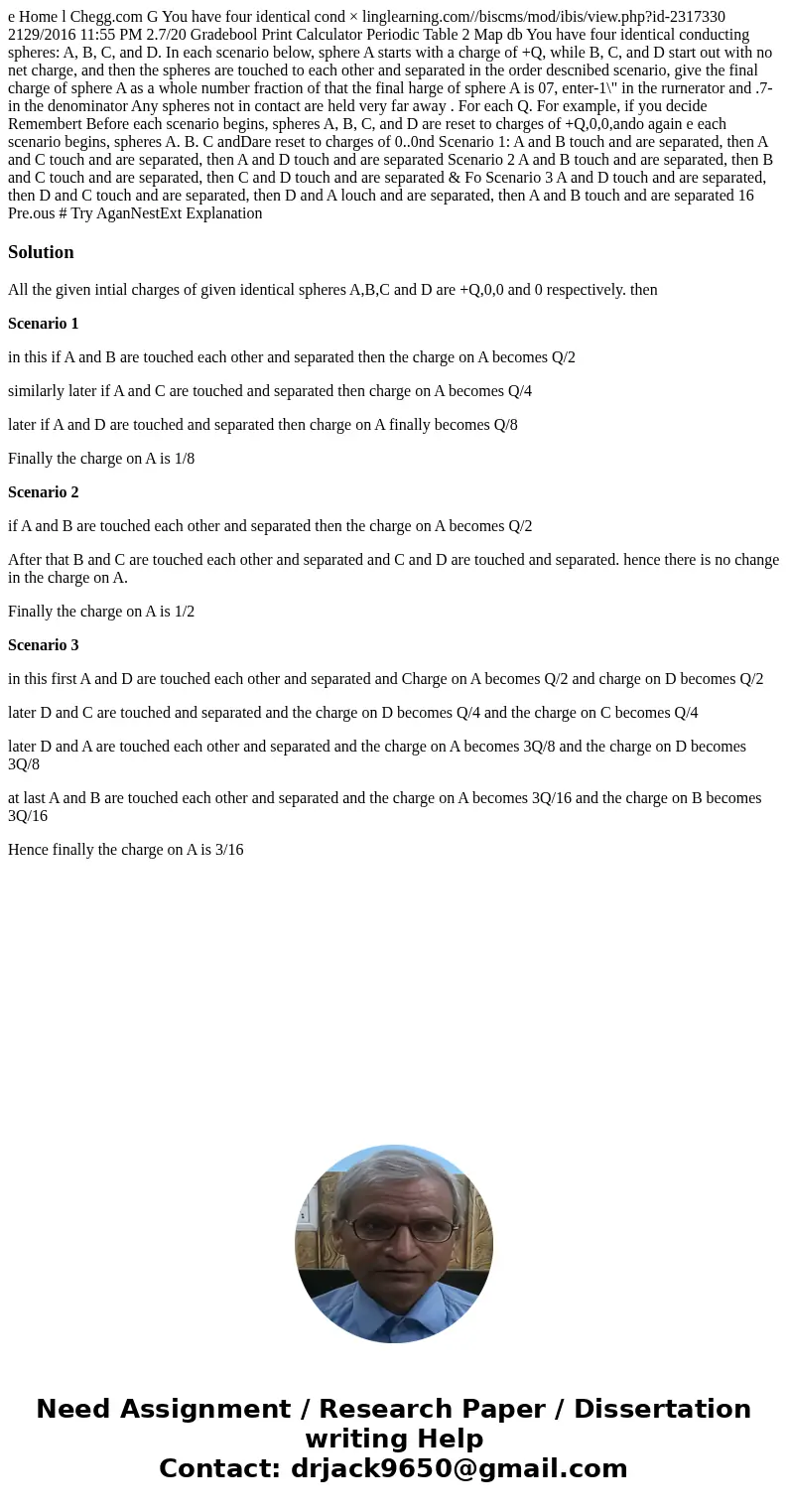e Home l Chegg.com G You have four identical cond × linglearning.com//biscms/mod/ibis/view.php?id-2317330 2129/2016 11:55 PM 2.7/20 Gradebool Print Calculator Periodic Table 2 Map db You have four identical conducting spheres: A, B, C, and D. In each scenario below, sphere A starts with a charge of +Q, while B, C, and D start out with no net charge, and then the spheres are touched to each other and separated in the order descnibed scenario, give the final charge of sphere A as a whole number fraction of that the final harge of sphere A is 07, enter-1\" in the rurnerator and .7-in the denominator Any spheres not in contact are held very far away . For each Q. For example, if you decide Remembert Before each scenario begins, spheres A, B, C, and D are reset to charges of +Q,0,0,ando again e each scenario begins, spheres A. B. C andDare reset to charges of 0..0nd Scenario 1: A and B touch and are separated, then A and C touch and are separated, then A and D touch and are separated Scenario 2 A and B touch and are separated, then B and C touch and are separated, then C and D touch and are separated & Fo Scenario 3 A and D touch and are separated, then D and C touch and are separated, then D and A louch and are separated, then A and B touch and are separated 16 Pre.ous # Try AganNestExt Explanation
All the given intial charges of given identical spheres A,B,C and D are +Q,0,0 and 0 respectively. then
Scenario 1
in this if A and B are touched each other and separated then the charge on A becomes Q/2
similarly later if A and C are touched and separated then charge on A becomes Q/4
later if A and D are touched and separated then charge on A finally becomes Q/8
Finally the charge on A is 1/8
Scenario 2
if A and B are touched each other and separated then the charge on A becomes Q/2
After that B and C are touched each other and separated and C and D are touched and separated. hence there is no change in the charge on A.
Finally the charge on A is 1/2
Scenario 3
in this first A and D are touched each other and separated and Charge on A becomes Q/2 and charge on D becomes Q/2
later D and C are touched and separated and the charge on D becomes Q/4 and the charge on C becomes Q/4
later D and A are touched each other and separated and the charge on A becomes 3Q/8 and the charge on D becomes 3Q/8
at last A and B are touched each other and separated and the charge on A becomes 3Q/16 and the charge on B becomes 3Q/16
Hence finally the charge on A is 3/16

 Homework Sourse
Homework Sourse